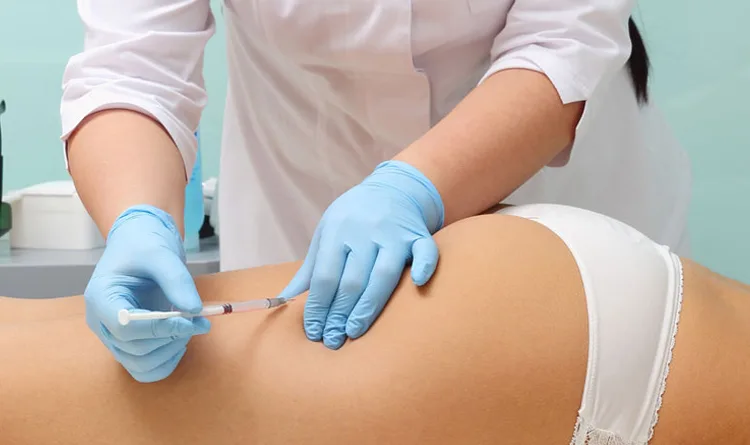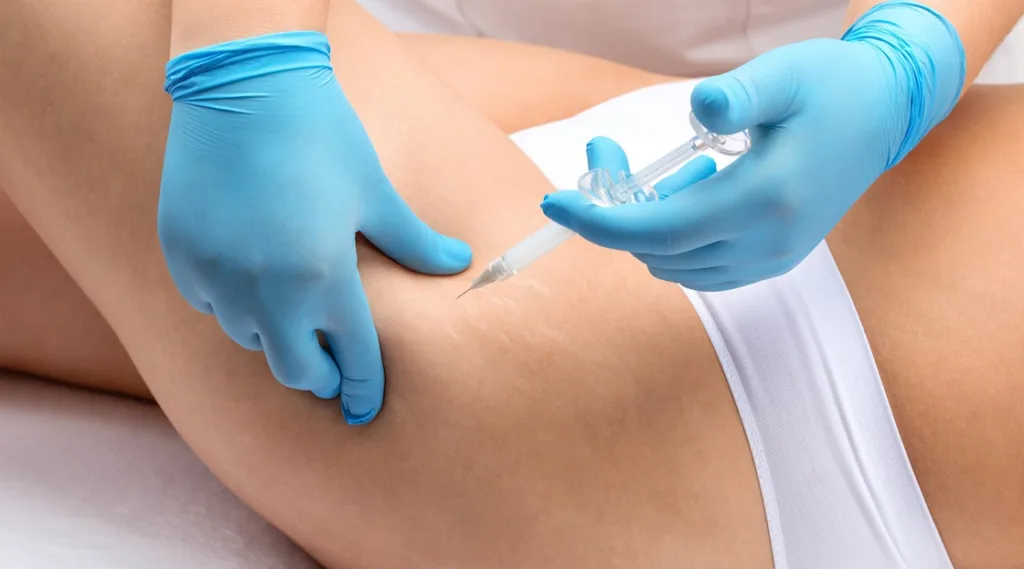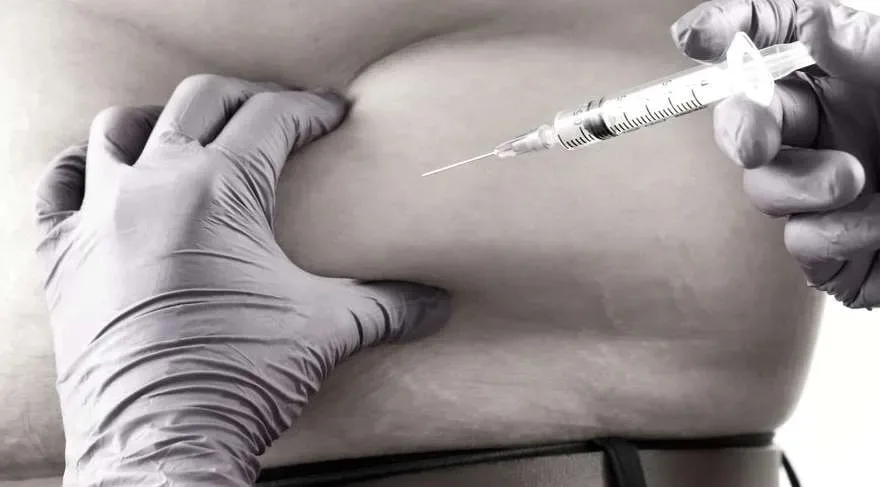Navigating the Path to Informed Choices
With obesity rates steadily climbing, many individuals struggling with weight management are turning to medical solutions like weight loss injections to accelerate their fat loss goals. The growing popularity of injection-based treatments has sparked important conversations around understanding both the costs and potential gains involved before proceeding. Making an informed decision requires digging deeper to weigh the benefits against the risks to determine if this path is suitable for your individual needs.
Through a thoughtful exploration of key considerations around medical weight loss injections, this blog aims to empower readers with the knowledge needed to make the best choices for their health and wellness journey. By calculating the financial and lifestyle costs, assessing possible gains like increased metabolism and fat burning, evaluating safety implications, and setting realistic expectations, individuals can better navigate the decision-making process. Though results may vary from person to person, a comprehensive understanding of the commitment required for injections, along with an open dialogue with a medical professional, is crucial.
Let’s examine some essential considerations when counting both the costs and gains of medical weight loss injections.

Understanding Medical Weight Loss Injections
First and foremost, it is vital to understand what exactly medical weight loss injections are and how they work before considering the treatment. These injections are administered by a qualified medical professional, such as a doctor, nurse practitioner, or physician’s assistant, and contain formulations designed to aid in weight loss efforts. Two of the most common types of substances used include lipotropic agents and hormone-based solutions.
Lipotropic injections contain compounds like choline, methionine, inositol, and carnitine, which are claimed to help break down and mobilize fat for energy. Some propose these injections boost liver function and metabolism as well. Choline supports lipid metabolism in the liver, methionine provides sulfur for metabolism processes, inositol helps regulate insulin activity, and carnitine enables transportation of long-chain fatty acids to be burned as fuel.
Hormone-based injections like HCG may stimulate fat metabolism, curb appetite, and preserve lean muscle mass when combined with nutritional regulation. The hormone Human Chorionic Gonadotropin (HCG) is produced by the placenta during pregnancy and claimed to mobilize stored fat when administered through injections. However, the efficacy and safety of these injections require further research and are often debated.
Consulting with a knowledgeable medical expert is highly encouraged when exploring medical weight loss injections. They can conduct health screenings, explain treatment regimens, discuss realistic expectations, and determine if you are an appropriate candidate for injectables or require alternative weight loss protocols. Making well-informed choices empowers your wellness journey.
Here are some key questions to address with your healthcare provider when assessing potential weight loss injections:
- What specific formulations do you recommend and why?
- How exactly will the injections aid my weight loss goals?
- What evidence supports the efficacy and safety of your suggested injections?
- What lifestyle or dietary changes may be required in conjunction with injections?
- How long is the typical treatment protocol and what results can I expect?
- What are the risks or side effects associated with these injections?
- Will my insurance cover any of the costs of treatment?
Thorough, open conversations will provide clarity around anticipated gains alongside practical expectations and considerations. Medical counsel is invaluable when investigating injectables.

Calculating the Costs: Financial and Beyond
When weighing medical weight loss injections as an option, the financial costs incurred are an important consideration. Initial consultation fees to meet with a specialist may range from $100 to $500 in some cases. The injections themselves can cost anywhere between $15 to $50 per injection, which may be administered weekly. Some practices also require membership or maintenance fees. Since injectables are considered cosmetic procedures, health insurance companies typically do not cover these expenses.
Here are some cost factors to account for:
- Initial physician consultation and screening fees
- Follow-up appointments if required
- Cost per injection (depends on ingredients used)
- Estimated number of injections recommended
- Membership fees for weight loss clinics or medi-spas
- Costs for micronutrient testing or food sensitivity panels if required
- Potential blood work to assess hormone levels, organ function, etc.
Accounting for other potential lifestyle costs is prudent as well. The injection regimen requires firm time commitments for regular appointments over an extended period. For in-person injectables, this necessitates calculated scheduling and travel time. Any dietary or activity changes recommended by the medical provider should be factored in too. Meal planning, gym memberships, workout equipment, or supplements could become necessary components.
Savvy planning and budgeting will give you a realistic preview of the total costs involved with injections. By mapping out all associated financial impacts, as well as broader time investments and lifestyle adjustments, individuals can make fully informed choices aligned with their overall health goals and resources. Monitoring your comprehensive budget will keep you on track while pursuing medical weight loss shots.

Weighing the Gains: Benefits and Expectations
When considering medical weight loss injections, the potential gains that motivate this path center heavily on accelerated fat loss. Injections are touted to stimulate targeted breakdown of fat cells, specifically in areas like the hips, thighs, and stomach. This focused approach of injections sets them apart from general weight loss efforts involving dietary changes alone.
Beyond expedited fat reduction, other gains may include:
- Increased energy and metabolism
- Suppressed appetite for better diet regulation
- Preservation of lean muscle mass while shedding fat
- Positive impacts on additional health markers like cholesterol at optimal wellness levels
However, it is critical to maintain realistic expectations when weighing these benefits. Results will assuredly vary based on the individual’s unique body composition, lifestyle factors, and adherence to the injectable regimen. Medically supervised injections work optimally as part of a holistic approach including a balanced nutrition plan and consistent exercise. Lean proteins, complex carbohydrates, and healthy fats coupled with cardiovascular and strength training routines best complement injection treatments.
The number of injections needed over a certain timeframe also impacts outcomes. Based on the formula used, providers may recommend weekly injections over several months to upwards of a year in some cases. Committing to the full treatment protocol is key for desired fat loss results.
Outcomes depend largely on the patient’s commitment to positive lifestyle changes in addition to receiving injections consistently. That said, injectables offer promise in accelerating the efficiency and targeted results of overall weight loss efforts for many. Here are a few reasonable expectations to guide your injectable regimen:
- Gradual weekly reductions in fat percentage and body measurements in stubborn areas
- Steady boosts in energy, metabolism and mental clarity
- Manageable appetite levels and less cravings once nutrition is stabilized
- Enhanced body composition with lean muscle retention as fat is shed
- Optimized wellness lab markers over the course of treatments
Maintaining realistic outlooks will help you stay motivated on your injection-assisted weight loss path.

Safety, Risks, and Side Effects
A thorough evaluation of medical weight loss injections should always include an examination of the safety considerations and potential side effects. As injectables pierce the skin with needles and introduce complex chemical formulations into the body, it is vital they are only administered by qualified medical professionals.
Licensed experts know how to screen patients properly, use sterile techniques, avoid complications with dosages or injection sites, and respond should any adverse reactions occur. They will also be attuned to your unique health profile, observing any factors that may preclude your safe participation. Astute safety measures and oversight give individuals optimal peace of mind.
That said, some risks and side effects do exist. Allergic reactions to ingredients in the injection formula can occur in rare cases. Those with certain health conditions may also face problems – people with diabetes or hyperthyroidism, for example, could potentially experience dangerous spikes in metabolism. Seeking your doctor’s counsel to discuss your full medical history is key in identifying possible contraindications.
Other side effects like dizziness, headache, nausea, or irritation at the injection site are possible as well. It is important to monitor your body’s response closely and maintain open communication with your provider should any troubling symptoms develop. Report any concerning reactions right away before subsequent injections. They can then adjust dosage amounts or formulas accordingly.
Thorough research and open discussions will empower awareness around safety considerations. Here are some key precautions to address with your healthcare provider when exploring injectables:
- What screening protocols do you follow to assess my health status and risks?
- Do you advise against injections for certain conditions or medications I take?
- What side effects or negative reactions should I watch for?
- When should I contact you urgently if problems arise?
- How will you modify my treatment plan if I experience adverse effects?
Proper safety measures will help you progress through your weigh loss injectable regimen with greater confidence.
Empowering Your Weight Loss Journey
In closing, carefully counting both the costs and potential gains involved with medical weight loss injections can empower individuals to make the most informed, personalized choices to support their health goals. Seeking expert medical guidance, budgeting diligently, setting realistic expectations, implementing lifestyle changes, prioritizing safety, and monitoring your body’s unique response will all prove invaluable.
While injectables present intriguing possibilities for accelerated fat loss, they also require great commitment in terms of finances, time, and responsibility. Weigh your options thoughtfully against your resources and needs. The powerful rewards of improved confidence, health, and wellbeing will make the effort worthwhile. Chart your path wisely by becoming your own best advocate through education and expert partnerships. You hold the reins to drive your optimal wellness.
Here are some final key tips to equip your journey with medical weight loss injections:
- Schedule an initial thorough consultation with a licensed healthcare professional
- Research injection options comprehensively including costs, expected results, and safety
- Budget diligently to account for all direct and indirect expenses involved
- Discuss your complete medical history and any prescription medications you take
- Follow screening protocols to ensure injectables are appropriate for your health status
- Commit to the full treatment regimen for maximum fat burning benefits
- Implement lifestyle adjustments like healthy nutrition and regular exercise
- Monitor your progress, side effects, and body’s response to injections
- Maintain open communication with your provider throughout your weight loss journey
- Adjust your expectations realistically as your body responds to the injections
The more knowledgeable, prepared, and proactive you are, the more empowered your injectable weight loss results will be. Now equipped with extensive considerations for weighing the costs against the gains, you can forge ahead on your wellness path with confidence.
Thank you for reading this post, don't forget to subscribe to our free newsletter
!
